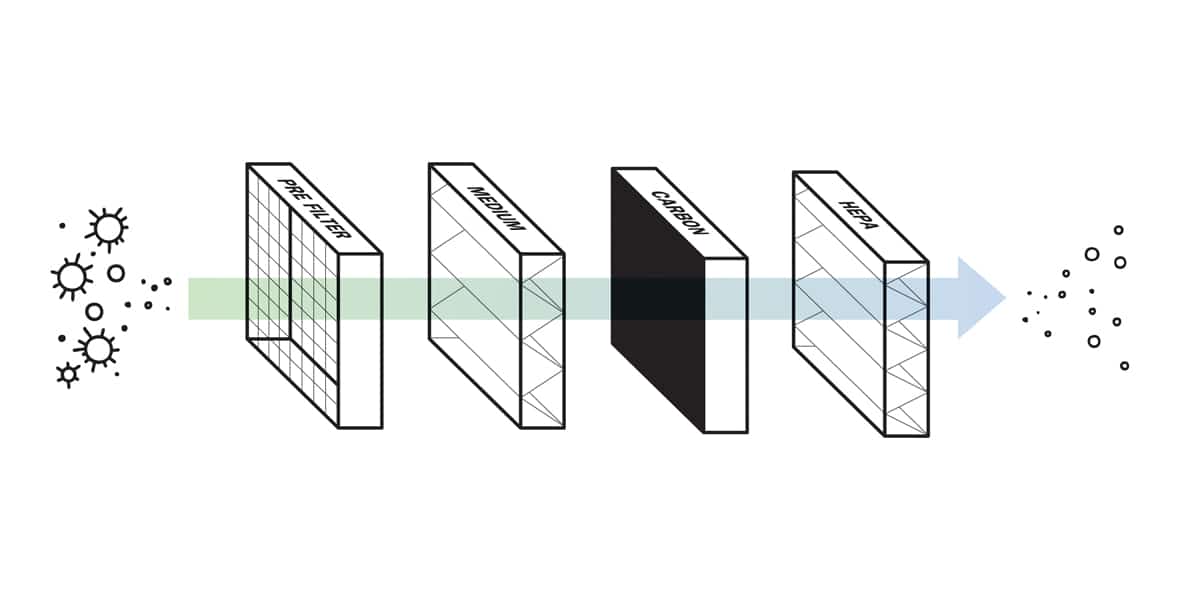
Your home is your castle, and you certainly want to breathe fresh air when you’re inside it. With the U.S. Environmental Protection Agency reporting that indoor pollutants are often more dangerous than outdoor pollutants, there may be a sense of urgency as well. Here’s what to know about filter technology when you’re shopping for air cleaners.
HEPA Air Filter
High-efficiency particulate arresting (HEPA) filters are among the best filter choices when it comes to capturing indoor dust, viruses, and other harmful pollutants. Some manufacturers may use the HEPA acronym.
However, to be sure you are purchasing a true HEPA air purifier, look for the label “True HEPA Filter.” HEPA filters remove up to 99.97% of particulates in the air — some as tiny as 0.3 microns.
Activated Carbon Filter
Activated carbon-filter technology (also called charcoal air filters) use a particular form of activated carbon, which consists of countless tiny absorbent pores. Activated carbon-filter technology doesn’t remove viruses and other particulates, but it does alleviate odors. It also neutralizes harmful gases, some chemicals, and volatile organic compounds (VOCs).
While not a stand-alone filter to install, activated carbon filters are often part of other air cleaners, such as HEPA air purifier systems and ultraviolet-light systems.
UV-Light Air Filter
UV filter technology does not remove particulates from the air like HEPA-filter technology or even standard air filters. UV light is a type of radiation that kills or neutralizes germs, bacteria, viruses, and other organic compounds.
As airflow passes through the UV-light system, these organic materials are rendered unable to multiply, or they are destroyed. Dust and other particulates aren’t captured, as happens with standard air filters. Therefore, UV-light systems are add-on accessories in addition to your air filter.
Ionic Air Filter
Ionic-air filter technology operates with charged electrical metal plates. An Ionic air filter releases a cloud of negatively charged ions into the air. Positively charged contaminants are attracted to the collector plates. The plates need to be periodically wiped clean as a result.
If you need help deciding which filter technology is right for you and your Eastern North Carolina home, contact us at Jackson & Sons.